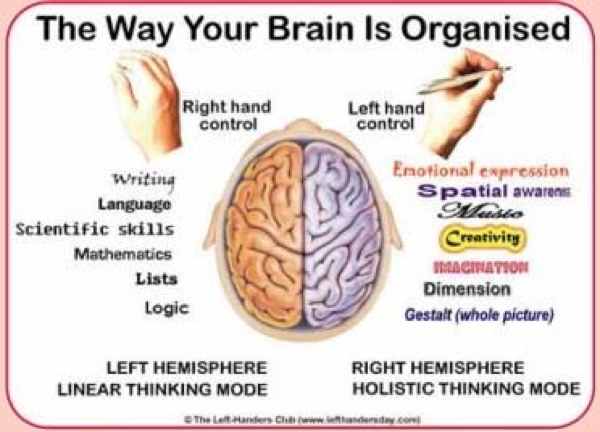 History
History  History
History  Weird Stuff
Weird Stuff 10 Wacky Conspiracy Theories You Will Need to Sit Down For
 Movies and TV
Movies and TV 10 Weird Ways That TV Shows Were Censored
 Our World
Our World 10 Places with Geological Features That Shouldn’t Exist
 Crime
Crime 10 Dark Details of the “Bodies in the Barrels” Murders
 Animals
Animals The Animal Kingdom’s 10 Greatest Dance Moves
 Movies and TV
Movies and TV 10 Box Office Bombs That We Should Have Predicted in 2025
 History
History 10 Extreme Laws That Tried to Engineer Society
 History
History 10 “Modern” Problems with Surprising Historical Analogs
 Health
Health 10 Everyday Activities That Secretly Alter Consciousness
 History
History 10 Dirty Government Secrets Revealed by Declassified Files
 Weird Stuff
Weird Stuff 10 Wacky Conspiracy Theories You Will Need to Sit Down For
 Movies and TV
Movies and TV 10 Weird Ways That TV Shows Were Censored
Who's Behind Listverse?

Jamie Frater
Head Editor
Jamie founded Listverse due to an insatiable desire to share fascinating, obscure, and bizarre facts. He has been a guest speaker on numerous national radio and television stations and is a five time published author.
More About Us Our World
Our World 10 Places with Geological Features That Shouldn’t Exist
 Crime
Crime 10 Dark Details of the “Bodies in the Barrels” Murders
 Animals
Animals The Animal Kingdom’s 10 Greatest Dance Moves
 Movies and TV
Movies and TV 10 Box Office Bombs That We Should Have Predicted in 2025
 History
History 10 Extreme Laws That Tried to Engineer Society
 History
History 10 “Modern” Problems with Surprising Historical Analogs
 Health
Health 10 Everyday Activities That Secretly Alter Consciousness
10 Weird Things that Make You Smart
Intelligence is one of those hard-to-define qualities, which fall into the category of ‘things you know when you see.’ Fortunately, many attempts have been made to quantify intelligence, and we’ve begun to discover patterns, suggesting links between intelligence and certain characteristics. Here I will explain some of the surprising characteristics which have been found to exist more commonly in intelligent people. Since co-occurrence does not imply causation, the exact relationship between these things can be hard to judge. So don’t get too big-headed just because you are a hairy, left-handed homosexual.

The brain is split into two hemispheres. While each half of the brain does broadly the same thing as the other, there are some differences. In humans, and lots of other mammals, one side of the brain is slightly dominant – this is why you favor one hand over another. Some studies have shown that left-handedness is linked to intelligence; left-handed people tend to score higher on IQ tests, and can also often finish these tests faster than right-handed people. Other studies, however, have shown that left-handed people have a wider range of IQs – making them over-represented in both the highly intelligent and the rather dim-witted sections of the population.

A study by the evolutionary psychologist Satoshi Kanazawa this year has found a small but significant link between homosexuality and intelligence. Rather than homosexuality itself being a characteristic of intelligence, Kanazawa’s results suggested that those who had had multiple homosexual partners were more likely to be intelligent. Those who scored highest on intelligence tests, tended to have had the greatest number of homosexual partners. Kanazawa suggests that homosexuality may be a reflection of inquisitiveness – a sure precursor, or companion, to intelligence. It has been suggested that the positive effect of homosexuality towards intelligence may be caused by society’s attitude towards gay people. Children bullied for perceived homosexuality may turn to intellectual pursuits, and may feel a greater urge to strive for achievement in areas where they will be accepted.

Many studies have found a link between IQ and the order in which you were born in your family. Firstborn children were found to be generally more intelligent than their siblings; the further down each child sat on the pecking order, the worse they generally scored in IQ tests. It was unknown whether this effect was due to some change in pre-birth conditions as a mother continued to bear children, or whether it was a post-birth social effect. Recent studies have revealed that the main determinant for IQ is how children are treated within their family – as opposed to birth order in itself. In families where the first child dies, the surviving second child, on average, has the same boost in IQ as is usual for a first child.

The link between IQ and religiosity has been studied extensively, in both individuals and societies. Average IQ scores tend to vary between countries. Those countries with the highest rates of atheism were found to be in the highest range of IQ scores. Since societal links can be easily skewed by other factors, studies on individuals have also been carried out. A 2008 study examined the relationship between intelligence and religious belief. When ranked in terms of intelligence, atheists generally came out on top, followed in order by agnostics, liberal believers, and last – and in this case least – religious fundamentalists.

Studies on men by Dr Aikarakudy Alias have found a link between body hair and intelligence. Rather than looking at IQ, he looked the relationship between body hair and levels of education. Perhaps contrary to popular belief, he found that men who were students or graduates had more body hair than those who work menial jobs. He also found that students who excelled in their degree were often hairier than students who performed poorly.
While his work focused particularly on chest hair, he also correlated the presence of back hair to intelligence in men. The hairiness of intelligent women has yet to be studied systematically.

Ernest Hemingway once said that “Happiness in intelligent people is the rarest thing I know.” We can all think of intelligent people who seem to be driven to misery by their intelligence (Hemingway committed suicide), and there does seem to be a strong link between intelligence and mood. In the past it was thought that high IQ was linked to depression and low moods. This year, however, a study in the UK showed that those with lower IQ were more likely to be unhappy than their more intelligent colleagues. Once again, it could be the characteristics associated with intelligence – rather than intelligence itself – which have tended to induce despair.

Eccentricity is a difficult quality to define and measure. It is usually seen as odd behaviour with regard to social norms, but behaviour which at the same time – unlike insanity – is not necessarily harmful to the individual. Some evidence (mostly anecdotal) points to creative intellectuals being prone to eccentricity, but eccentricity is also prevalent among academics. Montaigne once wrote that “obsession is the wellspring of genius and madness” – and perhaps it is this very obsession which creates an eccentric, and gifts him with a corresponding intelligence.

Some studies have followed British children as they grow up, and have measured a number of characteristics. This has allowed a range of traits to be correlated to intelligence. One study looked at the link between alcohol consumption and intelligence. It was found that you could predict a child’s level of alcohol intake, based on their intelligence. Surprisingly, intelligent children were more likely to be heavy drinkers when they grew up. Similar results have been observed in the United States.

Madness has been linked to intelligence since ancient times. Today, politically incorrect terms like madness are unacceptable for descriptive use, but the relation of mental illness and intelligence remains a fruitful area of study for neuroscientists and psychologists. A Swedish study compared the relationship between student performance and their mental health in later life. It found that amongst those students in the highest performing group, bipolar disorder was four times more likely to develop later in life.

Correlation does not necessarily imply causation. When a surprising link is made between two seemingly unrelated factors, you have to consider what may be the real link between the two. Very recently a study looked at the number of Nobel laureates per ten million people in a country’s population, and the amount of chocolate that the whole country consumes. The resulting graph shows a very strong and statistically significant positive correlation. While it may not guarantee you get a phone call from Stockholm, it seems that having a bar of chocolate – or being surrounded by chocolate-munching friends – won’t do your brain too much harm in the long run.







